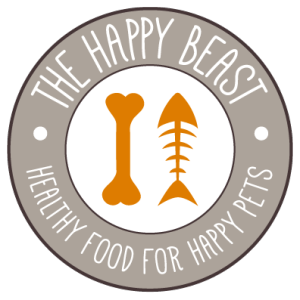I have a deep love for all cats, large and small, domestic and wild. They are fascinating creatures with instincts and physiques built for the hunt. It has been a long term goal of ours at The Happy Beast to support causes that go beyond the reach of our pet food industry. Taking care of our environment and all living creatures is the duty of every person on this planet.
When I recently read, “Out of the Shadows, the Wildcats You’ve Never Seen,”an article in National Geographic, I felt that it was important to take this opportunity to raise awareness for the plight of wildcats around the world and how industries like palm oil farming are threatening their habitats. I wanted to provide some of my additional research on the topic, and share how small, everyday decisions can have far reaching effects on preserving their habitats.
There are 31 known small wildcat species on Earth, which are broken into seven different lineages: the Caracal, Ocelot, Bay Cat, Lynx, Puma, Leopard Cat, and Domestic Cat. Small cats diverged from big cats (lions, tigers, leopards, and jaguars) 11.5 million years ago and evolved with a number of unique characteristics. For example, one distinctive trait between big cats and small cats is that big cats roar while small cats purr.
Big cats have a flexible neck bone called a hyoid that allows them to stretch their larynx to roar. Small cats are unable to roar and purr instead because their hyoid bone is hardened. Interestingly, cheetahs and cougars, while large in size, are actually more closely related to small cats and they do not roar like the other big cats.
While small wild cats might have slight physiques in comparison to the big cats, they achieve great feats of strength by using their acute senses and reflexes. They have amazing muscular strength and flexibility and their jaws and claws are built to deliver precise bites that can kill their prey instantaneously.
Small wildcats can be found on five of our seven continents, and 14 of the 31 small wildcat species live in Asia. Unfortunately, this is a part of the world where wildcats are least understood and protected.. It comes as no surprise that the greatest threat is loss of habitat. In Asia, much of the destruction of their habitat is due to forests being converted into palm oil plantations.
Palm oil farming, production, and food products are complex topics, but I was shocked by how much something simple like my daily purchases could affect the health and well being of an entire ecosystem half-way around the world. Palm oil is used in a variety of different products from health and beauty supplies to everyday food products, but it’s also relatively easy to avoid by paying closer attention to labels on the products we buy. In addition, websites like “Say No to Palm Oil” provide a variety of ways to take action to reduce your impact and help make your voice heard.
Because wildcats are apex predators, when we conserve their habitats, we are saving entire ecosystems and helping to preserve biodiversity.
I believe strongly that we all have the ability to make a difference in the world through both small and grand gestures. Often I’ve found that the first step is educating myself. Below are a few additional links with more information to help us raise awareness and make a difference in the conservation of these beautiful animals.
- Out of the Shadows, the Wildcats You’ve Never Seen – National Geographic photo expose and article that inspired this blog post.
- Say No To Palm Oil – Resources, tips, and recommendations, including the 28-Day Palm Oil Challenge.
- Wild Cats of the World by Luke Hunter – highlights the importance of wildcat conservation and how protecting them can be beneficial to us all.
- Species Conservation Fund – The Mohamed bin Zayed Species Conservation Fund is a philanthropic endowment established to provide targeted grants to individual species conservation initiatives, recognize leaders in the field of species conservation, and elevate the importance of species in the broader conservation debate.
- Panthera’s Small Cat Action Fund – The Small Cat Action Fund (SCAF) is a grants program established by Panthera intended to support in situ conservation and research activities on the many small cat species.
- Schuster Institute for Investigative Journalism at Brandeis University – Outline of Production: Palm Fruit to Product – Great, practical overview and guide on products containing palm oil
